Building on Self¶
To develop applications on the Self network, you'll need to follow these steps:
-
Install the Self Developer App (SDA): Download and install the SDA on your mobile device.
-
Register an account: Start the SDA and complete the registration process.
-
Download and install the Self Admin App.
-
Log in to the Self Admin App using your registered SDA to authenticate.
The SDA serves as both your digital identity wallet and the means to securely log in to the Self Admin App, where you can create, manage, and deploy your Self-network applications.
SDK Environments¶
Self provides two distinct environments for developing, testing, and deploying your applications:

Sandbox Environment¶
- Purpose: For development and testing
- Features:
- Simulated network conditions
- Test data and identities
- Test transactions and interactions
- Best for: Prototyping, debugging, and integration testing
Production Environment¶
- Purpose: For live, real-world applications
- Features:
- Full access to the Self network
- Real user identities and data
- Actual transactions and interactions
- Best for: Deployed applications serving end-users
Developers should start in the Sandbox environment to build and test their applications safely. Once thoroughly tested, applications can be migrated to the Production environment for real-world use.
Note: At the moment production environment is not available.
Client libraries¶
Self libraries cover both mobile and server platforms, allowing developers to build comprehensive solutions:
Mobile SDKs¶
Enable developers to integrate Self functionality directly into your application (iOS and Android). Mobile SDKs provide you with the tools to:
- Manage your Self identity
- Verify your identity
- Use
Self Connectto login to your application - Use
Self Credentialsto manage and share your verified information - Use
Self Signto sign your digital documents.
Server SDKs¶
Allow backend systems to interact with the Self network, process verifications, and manage user data securely.
With these versatile SDKs, developers can create a wide range of applications, from secure login systems and identity verification services to decentralized data sharing platforms and more.